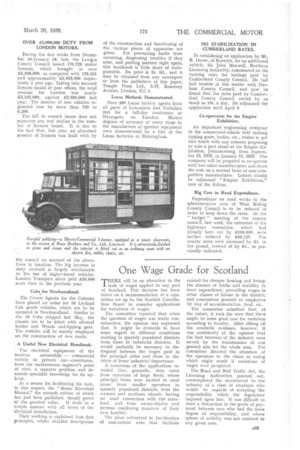One Wage Grade for Scotland
Page 31

If you've noticed an error in this article please click here to report it so we can fix it.
THERE will be no alteration in the scale of wages applied in any, part of Scotland. This decision has been taken on a recommendation of a committee set up by the Scottish Conciliation Board to consider applications for variations of wages.
The committee reported that when the question of wages was under consideration, the opinion was expressed that it might be desirable to have some regard to different conditions existing in sparsely populated districts from those in industrial districts. It would probably be necessary to distinguish between the wages paid in the principal cities and those in districts of lesser industrial 'importance.
A concensus of the applications revealed that, generally, they came from operators of large fleets, whose principal bases were located in rural areas; from smaller operators in sparsely populated districts; from the western and northern islands, having no road connection with the mainland, and from owner-drivers and persons employing members of their own
The pleas submitted in justification of concessions were that facilities existed for cheaper housing and living; the absence of traffic and inability to meet expenditure; prevailing wages in other, classes of labour in the district; and concessions granted to employees by way of accommodation, food, etc.
The committee admitted that, at the outset, it took the view that there might be some good case for variation according to locality. After sifting all the available evidence, however, it Was confidently of the opinion 'that the best interests of the industry were served by the maintenance of one general rate for the whole area. The committee directed the attention of the operators to the chaos in rating which might result if variations of wages were permitted.
The Road and Rail Traffic Act, the Licensing Authorities pointed out, contemplated the recruitment to the industry of a class of employee who would be capable of accepting the responsibility which the legislature imposed upon him. It was difficult to draw a distinction in the grade of payment between men who had the same degree of responsibility, and whose sphere of activity was not confined to any given area.




















































































